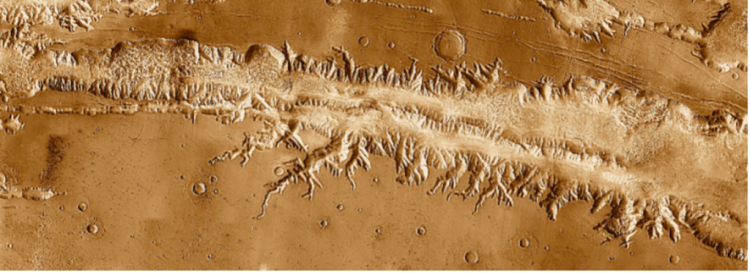
Isaac Smith
The funded research projects support a focus on ice, a critical resource for supporting future human missions to Mars by serving as a source of drinking water or rocket fuel. Martian regions that are abundant in icy deposits will become primary targets for future landing and exploration zones.
"I feel honoured to be the recipient of these awards. Earning one CSA grant is feels great, but two is something unique," says Smith, a faculty member in York University's Lassonde School of Engineering.
One of Smith's projects, which received $299,121 in funding, focuses on demonstrating predicting the feasibility and performance of a synthetic aperture radar (SAR) for detecting near-surface ice on Mars. Conducting airborne and ground-based fieldwork in Yukon, a region comparable to the environment on Mars, Smith's project will establish useful information about the SAR's ability to positively identify ice deposits in the subsurface, while his research team characterizes the depth, distribution and purity of detected ice. This work will help ensure the validity and best interpretations of data collected on Earth, with the goal of confidently extending these practices to data collected on Mars.
Knowledge gained from this project will directly support a large-scale robotic space mission led by NASA, the International Mars Ice Mapper, which focuses on developing a radar to help quantify specific characteristics of ice in exploratory Martian regions, supporting future planning of the first human missions to Mars. Smith's research is specifically designed to mimic the equipment and activities that will be used for the International Mars Mapper mission to help determine the best practices for NASA's radar and ensure confidence when analyzing collected information.
The other project, which received $148,251 in funding from the CSA sees Smith, as well as graduate students Chimira Andres and Ivan Mishev (both PhD candidates), analyze data to investigate two different Martian regions with deposits that indicate presences of water: Phlegra Montes, known for icy deposits, permafrost and glaciers; and Valles Marineris, a large canyon with sedimentary deposits on the rim that indicate ancient flowing water.
As a co-investigator on the Mars Reconnaissance Orbiter (MRO), a NASA-led mission that aims to search for the existence of water on Mars, Smith has access to data and resources that allow his students to investigate these regions and advance understanding of past and current climatic states on Mars. Analyzing Phlegra Montes is particularly important, as it is one of the best options for future human exploration and habitation on Mars. This project will also directly target objectives from the MRO mission including the study of Early Mars: Environmental Transitions and Habitability, and Amazonian Ices, Volcanism and Climate.

Ius Chasma, the largest region of Valles Marineris. Evidence of past water is seen in the rocks, including layered sediments close to the rim of the Chasma
Both projects aim to advance current knowledge of Martian environments, contributing to a pool of research that will progress NASA's goal of sending humans to the Martian surface by the mid-2030s.
This story was originally featured in YFile, York University's community newsletter.










